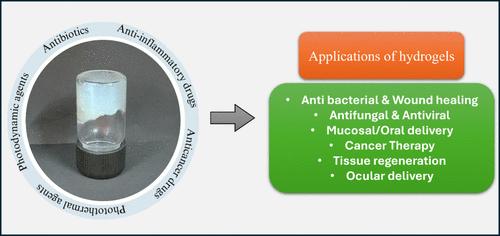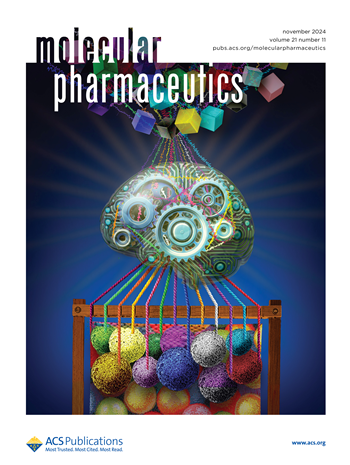水凝胶作为多模式治疗应用的潜在生物材料
IF 4.5
2区 医学
Q2 MEDICINE, RESEARCH & EXPERIMENTAL
引用次数: 0
摘要
水凝胶由亲水性聚合物网络组成,具有高含水量、生物相容性和可调特性,已成为生物医学应用中的多功能材料。它们能模拟自然组织环境,提高细胞活力和功能。水凝胶的可调物理性质可用于定制抗菌生物材料、伤口敷料、癌症治疗和组织工程支架。水凝胶对生理刺激的反应能力使其能够控制治疗药物的释放,而其多孔结构则有助于营养物质的扩散和废物的清除,从而促进组织的再生和修复。在伤口愈合方面,水凝胶可提供湿润的环境,促进细胞迁移,并输送生物活性剂和抗生素,从而促进愈合过程。在癌症治疗方面,水凝胶可提供针对肿瘤的局部给药系统,最大限度地减少全身毒性,提高疗效。水凝胶可形成接触镜和给药系统,与眼球表面保持长时间接触,从而改善各种眼部疾病的治疗效果。在粘膜给药方面,水凝胶有助于通过粘膜屏障给药,确保药物的持续释放并提高生物利用率。在组织再生方面,水凝胶可作为模拟细胞外基质的支架,支持细胞生长和分化,从而修复受损组织。同样,在骨再生中,含有生长因子和干细胞的水凝胶可促进成骨和加速骨愈合。本文重点介绍了水凝胶在各种生物医学应用中的一些最新进展,其驱动力在于水凝胶可根据特定治疗需求进行设计,并具有与生物组织相互作用的特性。本文章由计算机程序翻译,如有差异,请以英文原文为准。

Hydrogels as a Potential Biomaterial for Multimodal Therapeutic Applications
Hydrogels, composed of hydrophilic polymer networks, have emerged as versatile materials in biomedical applications due to their high water content, biocompatibility, and tunable properties. They mimic natural tissue environments, enhancing cell viability and function. Hydrogels’ tunable physical properties allow for tailored antibacterial biomaterial, wound dressings, cancer treatment, and tissue engineering scaffolds. Their ability to respond to physiological stimuli enables the controlled release of therapeutics, while their porous structure supports nutrient diffusion and waste removal, fostering tissue regeneration and repair. In wound healing, hydrogels provide a moist environment, promote cell migration, and deliver bioactive agents and antibiotics, enhancing the healing process. For cancer therapy, they offer localized drug delivery systems that target tumors, minimizing systemic toxicity and improving therapeutic efficacy. Ocular therapy benefits from hydrogels’ capacity to form contact lenses and drug delivery systems that maintain prolonged contact with the eye surface, improving treatment outcomes for various eye diseases. In mucosal delivery, hydrogels facilitate the administration of therapeutics across mucosal barriers, ensuring sustained release and the improved bioavailability of drugs. Tissue regeneration sees hydrogels as scaffolds that mimic the extracellular matrix, supporting cell growth and differentiation for repairing damaged tissues. Similarly, in bone regeneration, hydrogels loaded with growth factors and stem cells promote osteogenesis and accelerate bone healing. This article highlights some of the recent advances in the use of hydrogels for various biomedical applications, driven by their ability to be engineered for specific therapeutic needs and their interactive properties with biological tissues.
求助全文
通过发布文献求助,成功后即可免费获取论文全文。
去求助
来源期刊

Molecular Pharmaceutics
医学-药学
CiteScore
8.00
自引率
6.10%
发文量
391
审稿时长
2 months
期刊介绍:
Molecular Pharmaceutics publishes the results of original research that contributes significantly to the molecular mechanistic understanding of drug delivery and drug delivery systems. The journal encourages contributions describing research at the interface of drug discovery and drug development.
Scientific areas within the scope of the journal include physical and pharmaceutical chemistry, biochemistry and biophysics, molecular and cellular biology, and polymer and materials science as they relate to drug and drug delivery system efficacy. Mechanistic Drug Delivery and Drug Targeting research on modulating activity and efficacy of a drug or drug product is within the scope of Molecular Pharmaceutics. Theoretical and experimental peer-reviewed research articles, communications, reviews, and perspectives are welcomed.
 求助内容:
求助内容: 应助结果提醒方式:
应助结果提醒方式:


